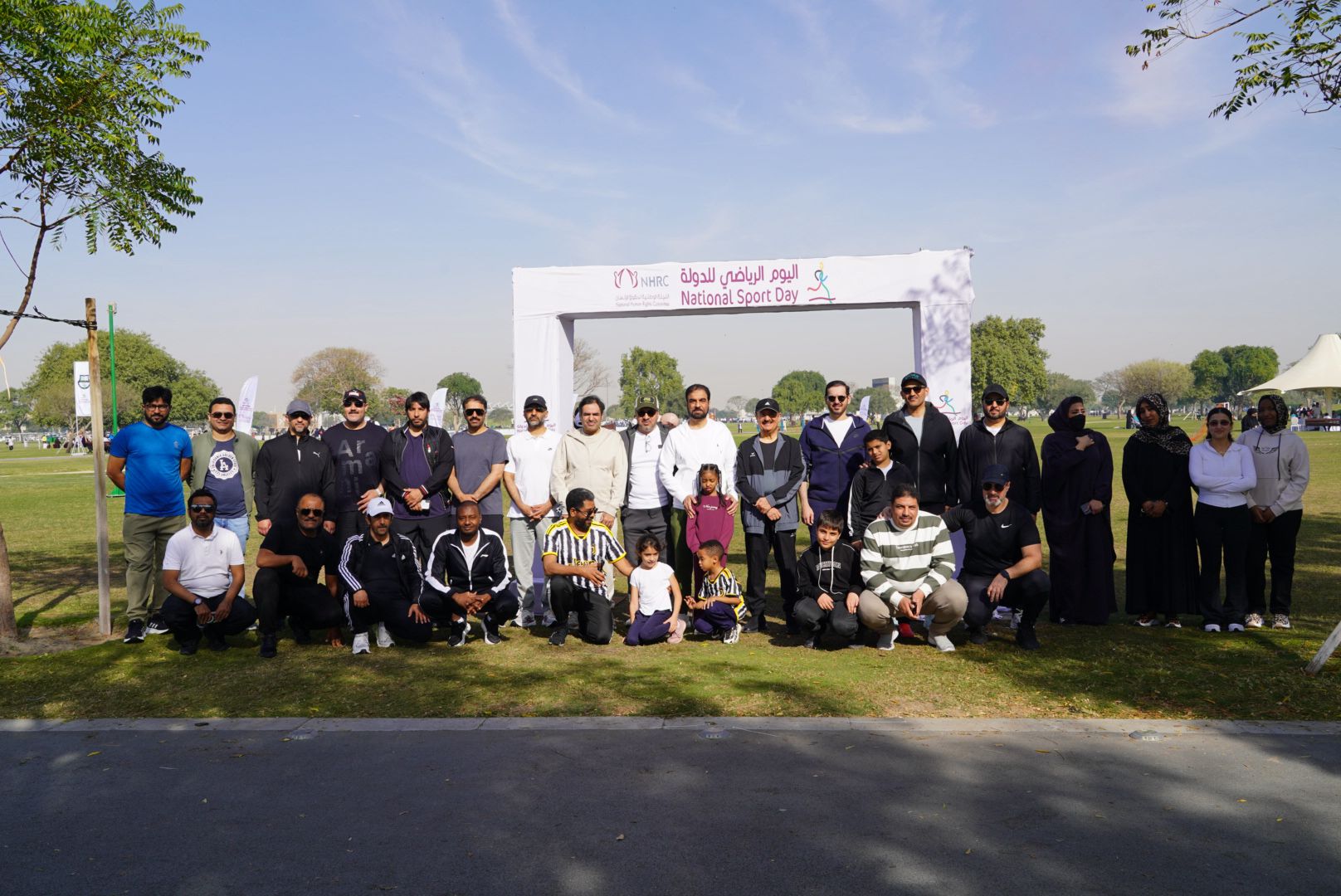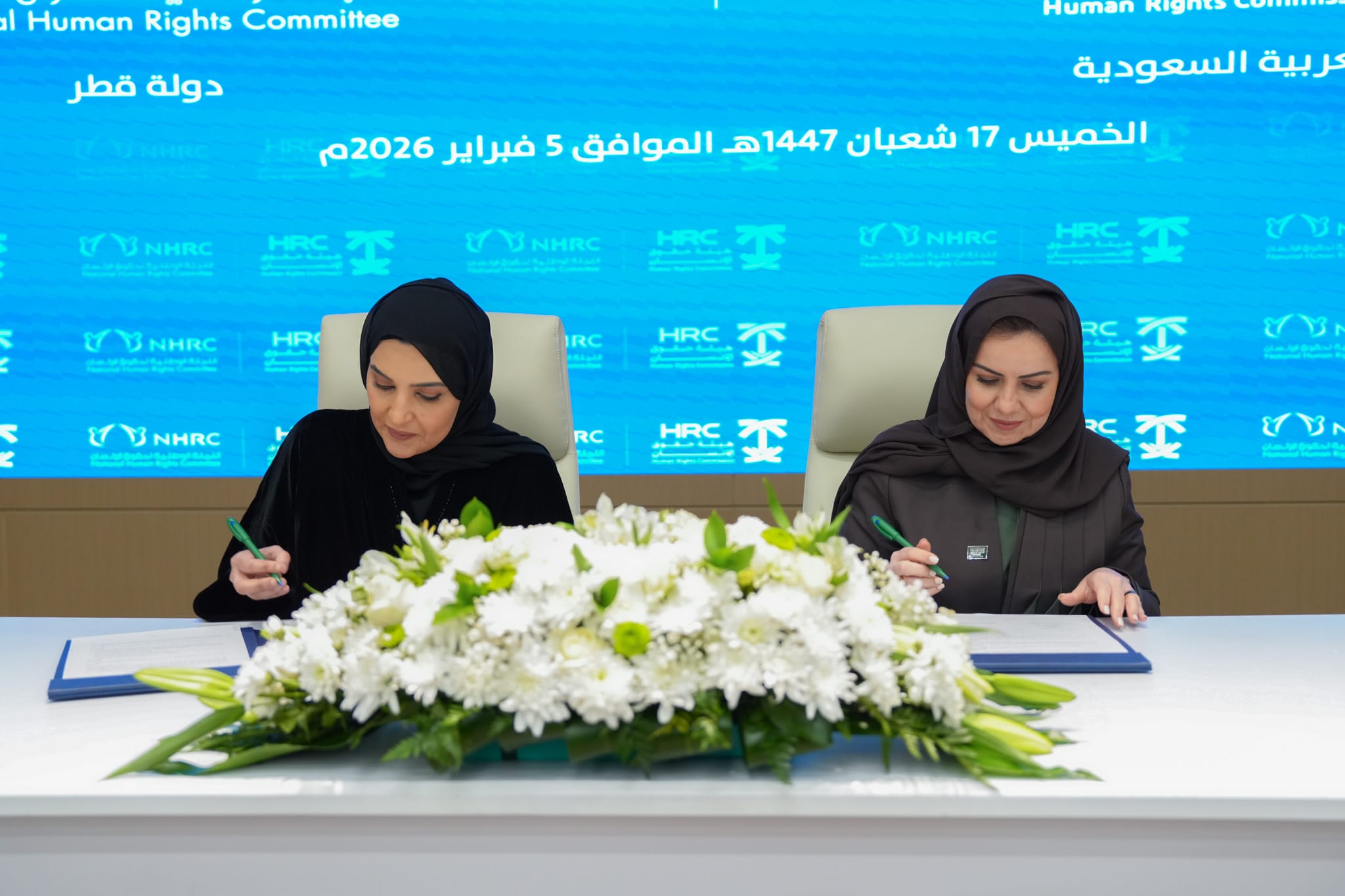الرجوع الى الأخبار
Security and Human Rights Conference Concluded
The Chairman of Qatar's National Human Rights Committee (QNHRC), Dr. Ali bin Smaikh Al-Marri described recommendations of the International Conference on the challenges to security and human rights in the Arab region as successful . He noted that the recommendations will be submitted to the HE the Prime Minister and Interior Minister Sheikh Abdullah bin Nasser bin Khalifa Al-Thani, the sponsor of the conference in addition to the partners including QNHR, council of Arab interior ministers, the Office of the United Nations High Commissioner for Human Rights (UNHCHR), the Arab Network for National Human Rights Institutions and the Arab League General Secretariat.
He described Doha conference as the first one of its kind in the region which brought together national human rights institutions, civil society organizations and those in charge of law enforcement and security agencies a matter which he said would lead to more coordination , cooperation and joint action between these parties At conclusion of the conference, Al-Marri thanked participants for their active , positive efforts and discussions that led to the success of the conference.
Meanwhile , the Secretary-General of Arab Interior Ministers Council, Dr. Mohammed bin Ali Kuman stressed that the conference was an opportunity to strengthen cooperation between the General Secretariat of Arab Interior Ministers council and participants, saying that human rights' principles and morals are an integral part of the Islamic religion and therefore no one can accept any rights may be contradicted with the Islamic religion .
Arab League Assistant Secretary General Ambassador Wajih Hanafi stressed the importance of such conferences in order to build confidence, noting that such a conference shows keenness on enhancing cooperation between security institutions and those concerned with human rights.
Furthermore, the Arab Network for National Human Rights Institutions Chairman Mohamed Fayek said that Doha conference was an advent for dialogue between non-governmental organizations and security institutions, praising role and efforts being exerted by the national institutions for human rights in order to fulfill human rights.
For his part, Head of the Middle East and North Africa Department at the UN High Commission for Human Rights Faraj Fneish announced readiness of the commission to cooperate with all parties and to help the Arab countries to meet their obligations towards protecting and promoting human rights .He called for more cooperation among the Arab region and international organizations concerned with human rights, stressing the importance of preparing a comprehensive Arab strategy on human rights.
Participants emphasized in the final statement that terrorism has a negative long-term impact on the community, where it destabilizes governments, undermines civil society, threatens peace, security, and economic and social development, which seriously affect the enjoyment of human rights. Maintaining security at the individual and collective levels, as a basic human right, is one of the most critical roles entrusted to states. Accordingly, States should take all necessary measures to achieve security in the framework of the rule of law and respect for human rights as stipulated in the relevant international conventions. Protection of human rights does not necessarily weaken national security, and security measures do not necessarily lead to diminution of human rights. The United Nations Global Counter-Terrorism Strategy that adopted the human rights and the rule of law as their substantial basis, should provide a frame of reference for Arab countries to take advantage of it in their efforts to combat terrorism. It is not permissible to link terrorism with any religion, nationality, civilization or ethnic group.
Conference recommendations stressed that States shall establish oversight and accountability mechanisms to prevent any possibility of exploiting the powers of law enforcement authorities in taking arbitrary measures against individuals or groups. States are urged to respect the Universal Declaration on the Protection of Human Rights Defenders, respect and protect journalists, prevent and end torture, call upon States that have prisoners of conscience to be released, including advocates and defenders of human rights, strengthen the independence of the judiciary and the transparency of legal proceedings, respect international standards for fair trial and fight against corruption. States are urged to adopt and implement measures to ensure compliance with the principles of the rule of law, equality before the law without discrimination, and avoid arbitrariness. States are urged to harmonize national agreements and covenants relating to security and human rights with international standards and urge states that have not yet done so, to accede to relevant international conventions, particularly the Convention against Torture and its optional Protocol, International Covenant on Civil and Political Rights, the International Covenant on Economic, Social and Cultural Rights and Rome Statute of the International Criminal Court. States are also urged to cooperate with the UN special procedures of the Human Rights Council and with the contractual mechanisms, and encourage States to carry out reforms in the judiciary and the security sector, whenever necessary, encourage ongoing and regular dialogue between security institutions, civil society organizations and national human rights institutions, and consider the establishment of a mechanism, wherever conditions exist for it, for cooperation between them in order that the security measures are compatible with international human rights standards and with what came in the UN Code of conduct for law enforcement officials for the year 1979.
Finally, participants expressed their gratitude to the State of Qatar, the National Human Rights Committee in Qatar, the Arab League, the Council of Arab Interior Ministers and the High Commissioner for Human Rights and the Arab Network of National Human Rights Institutions for their efforts to organize the conference and invite them to continue to work with relevant parties to implement the recommendations that were approved.
الصور






